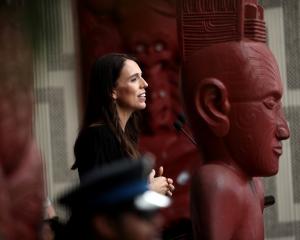If there is much that is to be admired, albeit sometimes grudgingly, about that rather large and self-professed "lucky country" across the Tasman - and from which on days like today we could learn a thing or two - it is the way in which it celebrates Australia Day.
It is a genuine day of national celebration, a day of unity, togetherness and, in a modest way, an opportunity to reflect on what it means to be Australian, although in a nation that has always had a terse attitude to the pastime known colloquially as "navel-gazing", there is a sense that such a preoccupation should not be unduly encouraged.
Cleverly, it is largely contained by the "set-pieces" that mark the day including, for instance, the Australia Day speech by a prominent Australian, which has become a fixture in New South Wales.
This year, January 26, 2010, the speech was delivered by General Peter Cosgrove (Rtd), former head of Australia's armed forces.
It followed the theme of "Sunshine and Shade", traversing positive events in the recent history of Australia, celebrating the optimism, compassion and sense of justice and equity of his fellow citizens, but also not shying away from some of the darker occasions and impulses.
The beauty of such an address is that it does provide an opportunity for an appropriate fostering of national pride but also a context for some of the more troubling issues countries invariably face.
But it seems to achieve the latter in such a way as to prevent controversy from overshadowing what is generally reckoned to be a relaxed and happy occasion.
Would that there was a little more celebration and a little less navel-gazing in this country.
Waitangi Day has so often been marked by a negative introspection focusing almost entirely on issues Maori, to the exclusion - sometimes even the acknowledgement - that if we are indeed a bicultural nation, then there is much about Pakeha culture that might be celebrated, too.
When Norman Kirk promised, during the 1972 election campaign, to create a national holiday to be set down on the anniversary of the signing of the Treaty of Waitangi, February 6, and to be named New Zealand Day, he was inviting the country to stroll down the path of nationhood.
It was a significant initiative in a conscious impetus towards a "new" biculturalism in which the two predominant cultures - and in 1972, there were still largely only two - were each to be respected for what they contributed both to each other's and to an emergent "New Zealandness".
As Mr Kirk put it in 1974: "We are not one people; we are one nation."
In 1976, New Zealand Day was changed to Waitangi Day.
Some still like to argue that this is when the rot set in, but the name of the day is largely irrelevant.
It is how it is observed that counts.
In this respect, any unaligned eyewitness of Waitangi Day celebrations, and the antics that have accompanied them over the intervening decades, might be tempted to remark that "respect" appears to flow mainly one way.
Should this perception become widespread there is every danger that our "national day" will either come to be resented, or, for large numbers of New Zealanders, slide into an irrelevance bereft of the nation-building possibilities that accompany that so successfully celebrated by our transtasman neighbours.
One feature of the Australian equivalent is the naming of national honours and there seems little good reason, other than the inertia of tradition, that the New Year's Honours List could not be moved to Waitangi Day.
It would imbue the occasion with greater dignity and significance and give focus to the sorts of qualities we aspire to and people we admire.
A considered speech from a prominent and respected New Zealander on what it means to be a New Zealander is another.
So often in the past, the only speeches heard have been through the megaphone of grievance and protest.
As a bicultural nation with various multicultural inflections, we must finally move beyond this and celebrate the great many advantages we enjoy in our shared histories and cultures, but also in the physical abundance and fertile hospitality of this beautiful country.
Australians have always been good at blowing their own trumpets, a trait occasionally resented but more often secretly envied on this side of the ditch.
On this day of all days, New Zealanders of whatever creed, colour or culture could do worse than to indulge in a modicum of imitation.
It is, after all, said to be the sincerest form of flattery.









